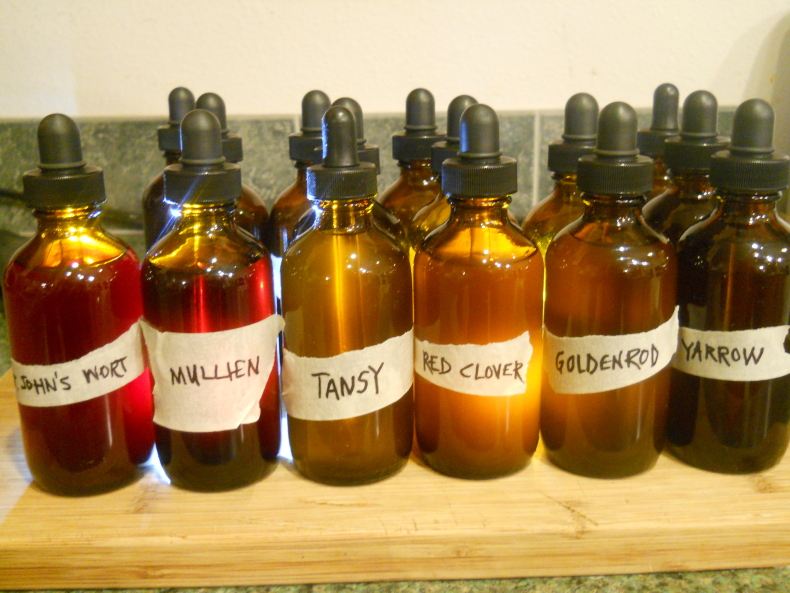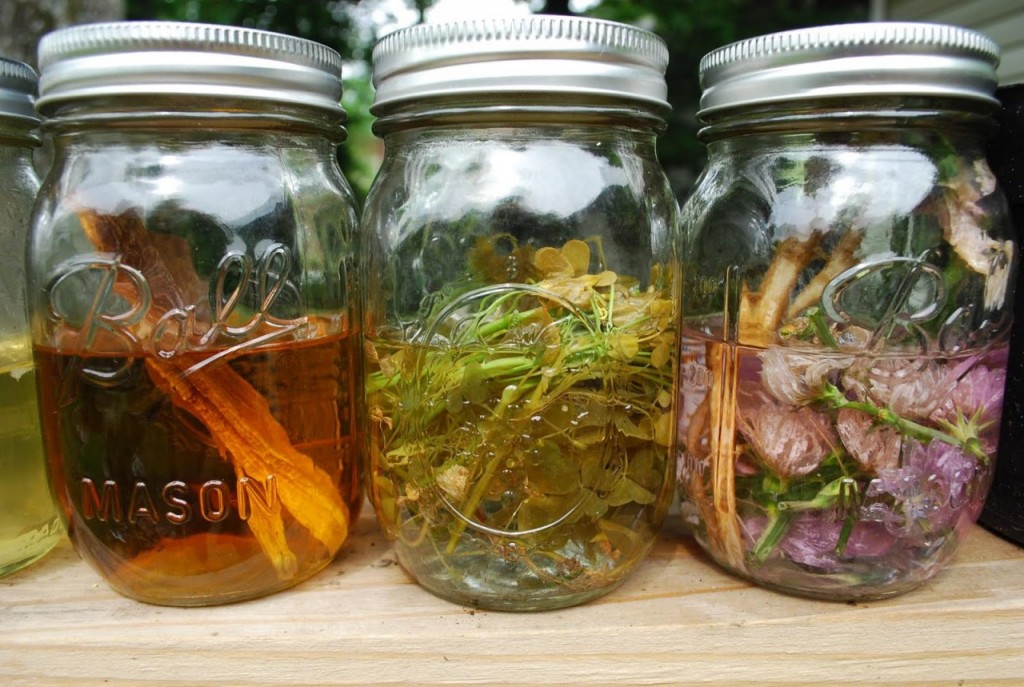How to Use Vinegar to Make Extracts and Tinctures
The commonly-accepted golden rule when it comes to making tinctures or extracts is to use high-proof alcohol. The most popular options are usually brandy or vodka. However, for those who don’t want an alcohol-based remedy, there is an alternative: Apple cider vinegar. While there are important differences between alcohol and vinegar, particularly when it comes to shelf-life and potency, using vinegar is a good alternative to know about nonetheless.
Subtle Differences
Vinegar does not have the ability to draw out the same concentrations of important nutrients as alcohol. This means that the finished product will be less potent, and you will most-likely need to take more of the remedy in order to experience the same effects you get from alcohol. However, one of the benefits of using vinegar over alcohol is that it tends to draw out more vitamins and minerals from the ingredients.
Getting Started
As a general rule of thumb, start with 1 part dried herbs or plants to 7 parts vinegar. However, feel free to experiment with different proportions in order to find the combination that will give you a remedy that has the best potency. Place the vinegar and herbs into a mason jar, cover tightly with a lid and give it a good, vigorous shake for a minute or two. That’s it. Now, all you need to do is let it rest and allow the vinegar to work its magic.
If you are using a metal lid, cover the jar with some plastic wrap before attaching it. The acids from the vinegar can eat away at the metal as well as contaminate the medicine. Once covered and shaken, place the jars in a cool, dark location and let them rest for about 2-3 weeks. Give the jars a good shake or two every day in order to extract as much nutrients as possible during the extraction process. The remedy should have a shelf life of around six months, whether you keep it in the jar or transfer it to medicine dropper bottles after it has aged.
Dosing
One of the drawbacks to using vinegar is the acidic and bitter taste, and one of the best ways to smooth it out is to mix in a little bit of honey with each dose. Start with equal amounts of honey to medicine, and adjust as necessary. Another important thing to remember is to rinse your mouth with some water, tea or juice after dosing in order to prevent vinegar from being absorbed into the teeth, as this can erode their enamel over time.
As a general rule of thumb, plan on doubling or tripling dosages compared to alcohol-based remedies. So, if an alcohol remedy calls for a teaspoon three times a day, use two or three teaspoons instead. Again, the potency of the remedy will vary depending on the herb or plant used as well as how well the vinegar extracts their healing compounds. Finally, it’s thought that using dried herbs will produce a more potent remedy as more of their nutrients are released into the tincture. Fresh ingredients contain a lot of water which can dilute the finished product.
In any case, this approach provides an alternative for those who don’t want or can’t use alcohol-based tinctures. It also makes for a great back-up option if you can’t make traditional tinctures as well. Try it for yourself, and see how this can be a beneficial addition to your emergency medicine cabinet.


